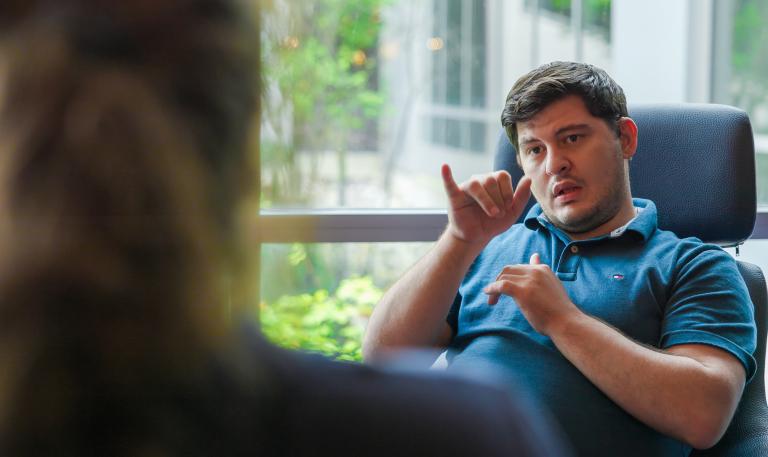MITRE Connects: Improving Telecommunications for the Deaf Community

For 48 million Americans who are deaf, or hard of hearing, making routine phone calls—whether to the doctor or to the bank— can pose major challenges.
Since 1990, the Americans with Disabilities Act requires telecommunications service providers to maintain “functional equivalence,” which means it should be as easy for a deaf person to make phone calls and communicate as it is for a non-deaf person.
Deaf callers rely on services overseen by the Federal Communications Commission (FCC), known as Video Relay Service (VRS). When activated, VRS sets up a three-way call with a communications assistant who translates American Sign Language into spoken English and vice versa. But call failures, system lags, and a host of other technical problems can impede effective communication.
FCC’s National Test Lab operated by MITRE in McLean, Va., functions as a nexus between the FCC’s Consumer and Governmental Affairs Bureau, the Telecommunications Relay Service industry, and our academic partners representing the deaf community. The goal is to ensure these services work for the deaf and hard of hearing consumer as expected, on every call, every time.
To troubleshoot interoperability and service quality, our lab teams make up to 24,000 test phone calls per quarter, both manual and automated. The data is collected, analyzed, and shared with the FCC to support and drive decision-making. Individual test data is shared with the respective service providers as quality assurance to guide service and product improvements.
“We’re working on achieving functional equivalence, and that’s most important when you’re trying to achieve equity,” says Arber Deski, an enterprise engineer who works in the lab.
Contributors: Catherine Trifiletti, Joshua Gottschling, Cooper Bennett, Laura Homer, Mike Mahoney


